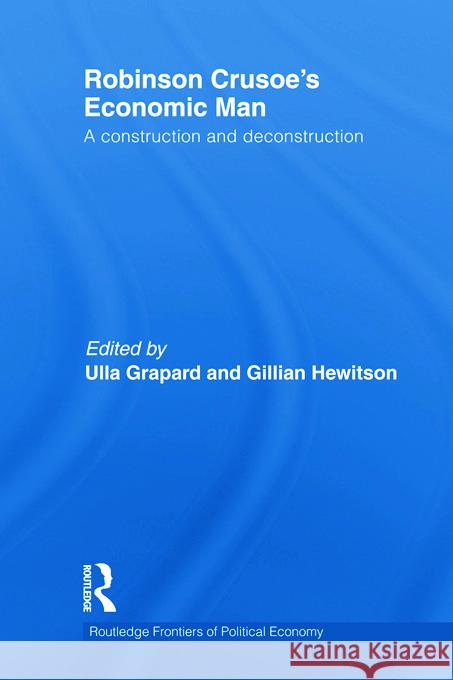Robinson Crusoe's Economic Man : A Construction and Deconstruction » książka
Robinson Crusoe's Economic Man : A Construction and Deconstruction
ISBN-13: 9780415701099 / Angielski / Twarda / 2011 / 272 str.
Robinson Crusoe's Economic Man : A Construction and Deconstruction
ISBN-13: 9780415701099 / Angielski / Twarda / 2011 / 272 str.
(netto: 744,80 VAT: 5%)
Najniższa cena z 30 dni: 730,42
ok. 22 dni roboczych.
Darmowa dostawa!
A worldwide team of contributors have been brought together to provide a productive engagement between economics and literature where the tools of literary and cultural theory are applied to the discipline of economics.
Robinson Crusoe is a favourite subject of economists in that conditions on his island were, at least until the arrival of Friday, the closest one could get to those of a laboratory, with the concept of ceteris paribus as near as it comes to being the case. Crusoe has thus come to be seen as a kind of 'economic man', a rational actor for whom issues of sex, race and class were irrelevant.
But we don't all live on desert islands and to use Crusoe as a viable guide to how we all should act is, in the opinion of the contributors to this book, quite wrong. Besides, on close reading, Defoe's original novel fails to support this view.
A worldwide team of contributors have been brought together to provide a productive engagement between economics and literature where the tools of literary and cultural theory are applied to the discipline of economics.











